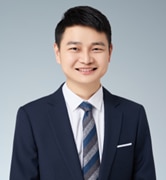Envalior

Renewable energy is a global priority, driven by rising costs, extreme weather, and resource constraints. China leads this shift through its National Strategy for green transformation, with its photovoltaic (PV) industry at the forefront. In 2022, solar power contributed 57.41% of new renewable capacity, producing 1.19 trillion kWh alongside wind, underscoring China’s commitment to sustainability.
Since 2012, global and China's PV installed capacity growth rate has been 21% (see figure 1) and 26% (see figure 2), respectively. Considering China's significant advantages in the global PV industry chain, such as silicon materials, silicon wafers, battery cells, and modules, China's PV industry will also benefit from the accelerated progress of global new energy construction.
Figure 1. Trend of global annual PV installed capacity growth.
Figure 2. Trend of annual PV installed capacity growth in China.
The diversity of PV systems—including centralized setups and installations on residential, commercial, and industrial roofs—introduces unique structural and material requirements. While innovation in the PV sector is advancing rapidly, the industry faces challenges such as cost reduction, efficiency optimization, and resistance to harsh environmental conditions. These hurdles necessitate advanced materials that balance performance, durability, and sustainability.
Engineering plastics offer numerous advantages over traditional materials like metal, including lower weight, greater design flexibility, and cost efficiency. In a world striving for carbon neutrality, the use of sustainable materials in PV systems is critical. Compared to traditional thermal power, PV power generation emits significantly less carbon, and the integration of low-carbon materials further amplifies these benefits.
Envalior is committed to driving sustainability in the PV industry. By 2030, we aim to offer bio-based and recycled alternatives for our entire material portfolio. Current solutions like Akulon® RePurposed , Akulon® Bio-Mass balanced materials and EcoPaxx® PA410 already support carbon reduction efforts. Additionally, our dedicated carbon emissions department enables customers to quickly calculate the carbon savings achieved with our materials, simplifying compliance with global sustainability standards.
PV system components, including body connectors, nuts, and claws, must meet rigorous safety and performance standards. These include UL (f1) certification, V-0@1.5mm flame retardancy, CTI≥600V, and resistance to chemical corrosion. The specific corrosion resistance needs vary by application:
Envalior’s Akulon® materials outperform alternatives like PC and PPO in chemical resistance, mechanical strength, and heat resistance. For example, Akulon® SG-KGS5/HV (25% glass fiber reinforcement) and Durathen® BKV30FN04 (30% glass fiber reinforcement) provide excellent wear resistance, UV protection, and halogen-free flame retardancy. These solutions meet the stringent requirements of PV connector bodies, while Akulon® S225-KS and K225-KS grades are optimized for nuts and claws.
PV inverters require advanced materials capable of withstanding harsh weather, high temperatures, and prolonged UV exposure. Wire terminals and phase spacers must deliver high dielectric strength and thermal resistance, while inverter housings and brackets demand exceptional strength, UV stability, and flame retardancy.
Envalior’s materials meet these specifications, ensuring that PV inverters remain reliable under challenging environmental conditions. Leveraging our expertise in low-voltage electrical and automotive applications, we provide complete solutions for lightweighting and durability in PV system components.
As the photovoltaic industry evolves, the demand for advanced, sustainable materials will only grow. Envalior is your trusted partner in navigating this dynamic landscape, offering materials that enhance performance, reduce carbon emissions, and drive innovation in PV systems.
Contact us today to explore how our solutions can help you meet and exceed your PV system application requirements.

Application Development Manager, Envalior
In 2021 Liu Bing joined Envalior Engineer Materials as an application development manager of electronics for Greater China North. He is responsible for many electrical customers, including Schneider, ABB, Siemens and Eaton. In 2022, he became Envalior’s application development manager of photovoltaics. He develops and oversees PV connector and invertor projects.
01 May 2025
3 min read
Get in touch with our material experts.